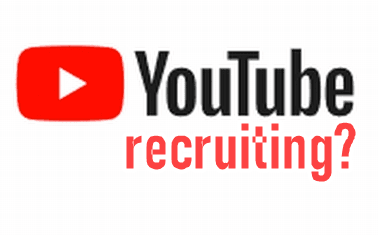In the November 27, 2018 Ask The Headhunter Newsletter a reader says it’s awkward to ask for feedback after a job interview.
Question
Interview coaches say you should try to “close” on a job offer at the end of an interview. Say things like, “Is there anything that would prevent you from making me an offer?” or, “Can I tell you anything else that would help you decide to hire me?”
I feel awkward being that pushy. What I really want is some honest feedback, but it’s hard to ask for it for the same reason — it feels pushy. Got any ideas to help me?
Nick’s Reply
Those career coaches are recommending a cheap sales trick that every sales prospect and hiring manager has heard a million times. Note that the two “closing questions” you cite have nothing to do with the job you’re interviewing for! Such questions have nothing to do with feedback! They’re a cheesy way to ask, “Are you going to hire me?” and “Are you going to buy something?”
When you ask for feedback, do it with integrity. The topic is the job, not the job offer. So focus on the job, on the work, and on making sure you understand the details of it! A useful request for feedback triggers a loop, or a conversation, about the job. That’s what helps you prove you’re the best candidate.
The interview feedback loop
The feedback loop is a fundamental mechanism in so many working systems — biological, mechanical, computer, social. Nothing works effectively without feedback. In a job interview, there’s no way to address the employer’s needs effectively if you don’t know what the employer thinks of what you’ve already said.
Imagine meeting with your boss to get a new work assignment. He tells you what he expects. If you’re smart, you re-state it in your own words to make sure you’ve got it right. Then you explain what actions you will take to do the job. Your boss will share his reaction, and you learn more about what he really wants. You modify your plan, re-state it, and ask some more questions. Don’t leave his office until there’s enough back-and-forth that you’re confident you’ve got it right. That’s a feedback loop.
When I coach job candidates, I suggest they open a feedback loop at the beginning of a job interview, so they can ask feedback questions throughout the meeting.
How To Say It
Tune this to suit your style while you’re talking with an employer:
“I know this is an interview, but I’d like to ask you to judge me under an even stricter standard. Think of me as an employee. Please critique what I have to say during our discussion, as if you were critiquing someone on your own team.
“At the end of our meeting, I’d like to ask you to judge me as an employee. Would you give me an important assignment? Demote me? Fire me? Promote me?
“I say this not to presume control of our meeting today, but because I really believe that if I cannot demonstrate to you how I’d add profit to your bottom line, you should not hire me.
“But I’m confident I can show you, during our time together, that I’m the most profitable job candidate you’ll meet for this job. Your feedback is crucial to me whether I’m your employee or a job candidate.”
Interviewers who have a difficult time addressing your request for such feedback are probably terrible at communicating a work assignment to an employee. They don’t know how to work well with others. They have no business assessing job candidates, much less managing anyone.
Don’t wait until the end of the interview
“At a comfortable point during your meeting, ask the manager for permission to show what you can do…This is more than a demonstration. You will be working with the manager on a live issue as a member of his team. Invite the manager to define the goal. Create an outline, a list, or diagrams to help simplify the definition of the problem…Together, create a strategy to tackle the problem, and go over the tasks that need to be accomplished to solve it.”
From “How to do a Working Interview™,” pp. 22-24,
Fearless Job Hunting, Book 6 — The Interview: Be The Profitable Hire
So, set the stage early in the interview. Put your discomfort or fear aside. Ask for feedback throughout the interview, and show the employer how such back-and-forth is helpful to both of you. Use feedback to fine-tune your discussion about how you’ll do the job profitably! (See Stand Out: How to be the profitable hire.)
I poll managers all the time: How would they respond to such a candidate? Only weak managers and personnel jockeys scratch their heads. Good managers tell me, “Are you kidding? I wish I could meet a candidate who knows how to discuss what I need like that!”
What if you’re the employer?
We all know the employer is really in control of a job interview. The employer requested the meeting, and needs to decide whether to pay money to hire you. The feedback loop is critical to the employer, too, so the employer should use it!
If you’re the employer, the How To Say It suggestion above is easy enough to twist 180 degrees so you can explain what you need done in the job, then ask the candidate to re-state it to you. It’s a great test of a job candidate — and an honest test.
Here’s what to look for:
- Can the candidate re-state your objectives accurately? (That is, does the candidate understand you?)
- Does the candidate ask questions that will help clarify your objectives?
- Does the candidate ask what tools are available to get the work done?
- Does the candidate respond with an outline of sound methods to achieve your objectives?
Tell the candidate you’re viewing her as an employee — and that at the end of your meeting, you’re going to give her a performance review. Ask her to pretend she’s meeting with her boss — you — and you’re giving her a new work assignment. Explain that you need to see how she uses a feedback loop to get it right.
Then, deliver feedback yourself throughout the interview! Let the candidate know how she’s doing. Help her understand the job so she can perform at her best. Isn’t that what you’d do for an employee? Do it for every job candidate. That’s the only way you’ll be able to assess how they might perform if you hired them. That’s feedback!
Use feedback to have a Working Interview™
Interviews are usually little more than canned Q&A. They should be working meetings, but two people can’t work together if they don’t ask for, and give, feedback.
Don’t ask cheesy “closing questions” at the end of your job interviews. That’s not feedback! Real interview feedback happens during your job interview, not after it. It’s also known as the lost art of real conversation!
How do you use feedback to optimize your job interviews?
: :


 I’ve been with the same company for five years, with total 18 years’ experience. I’m considering an attractive offer from a year-old start-up financed by a very respected venture capital group. The offer includes stock options. The idea is that someday they’ll go public and will be hugely successful, or someone will buy the company, and we’ll all become rich (on paper).
I’ve been with the same company for five years, with total 18 years’ experience. I’m considering an attractive offer from a year-old start-up financed by a very respected venture capital group. The offer includes stock options. The idea is that someday they’ll go public and will be hugely successful, or someone will buy the company, and we’ll all become rich (on paper). It’s not clear whether you’re referring to being recruited for an interview via Twitter and Google Hangouts, or whether you’re going to actually be interviewed that way. Regardless, social media do indeed seem to be popular for recruiting scams.
It’s not clear whether you’re referring to being recruited for an interview via Twitter and Google Hangouts, or whether you’re going to actually be interviewed that way. Regardless, social media do indeed seem to be popular for recruiting scams. I just came across some of your articles when trying to research my job offer being rescinded (
I just came across some of your articles when trying to research my job offer being rescinded ( Is it acceptable to bypass the standardized job boards and HR resume processing, to seek a direct communication with the company? By acceptable, I mean will it hurt my standing with the hiring facilitators?
Is it acceptable to bypass the standardized job boards and HR resume processing, to seek a direct communication with the company? By acceptable, I mean will it hurt my standing with the hiring facilitators? I have a background in sales and marketing with high-profile accounts. I recently became certified in Lean Manufacturing to complement my
I have a background in sales and marketing with high-profile accounts. I recently became certified in Lean Manufacturing to complement my  In the
In the  What do you do when the employer interviewing you has four requirements but you meet only three of them — yet you know that you’re the best person for the job? How can I turn this kind of situation into a job offer?
What do you do when the employer interviewing you has four requirements but you meet only three of them — yet you know that you’re the best person for the job? How can I turn this kind of situation into a job offer? I work in Human Resources (HR). During our on-boarding process, we send prospective employees for a drug screen and run a background investigation and, if the job requires driving, a motor vehicle record (MVR) check. The background is launched when the applicant electronically completes an authorization.
I work in Human Resources (HR). During our on-boarding process, we send prospective employees for a drug screen and run a background investigation and, if the job requires driving, a motor vehicle record (MVR) check. The background is launched when the applicant electronically completes an authorization. My son, who earned an advanced STEM degree, was hired by a firm which was highly impressed by his education, and emphasized how important it was to have someone with his qualifications joining their team.
My son, who earned an advanced STEM degree, was hired by a firm which was highly impressed by his education, and emphasized how important it was to have someone with his qualifications joining their team.